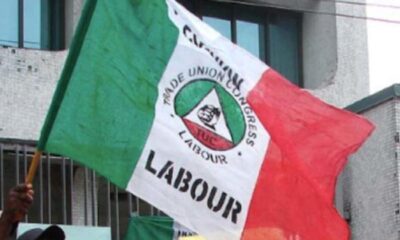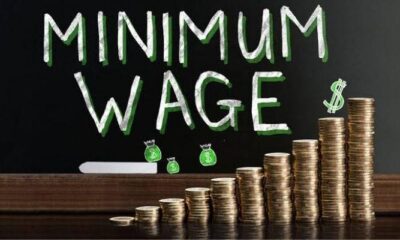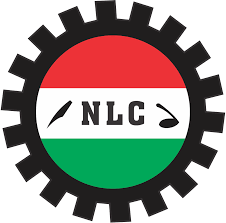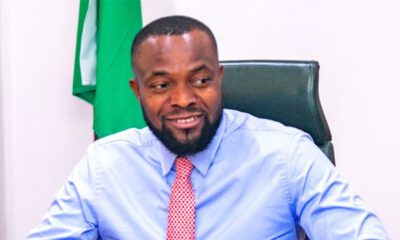Business
NES 2023: FG targets reduction of poverty to 0.6% by 2030
By Matthew Denis
The Minister of Budget and Economic Planning, Sen. Abubakar Atiku Bagudu has disclosed that the Federal Government is targeting the reduction of poverty in the country to 0.6 percent and unemployment rate to 6.3 percent by 2030.
The Minister made this known this during the World press conference for the 29th Nigerian Economic Summit (#NES29) in Abuja on Thursday.
The theme of the #NES29 is “Pathways to Sustainable Economic Transformation and Inclusion,” the submit is scheduled to hold from October 23 – 24 at the Transcorp Hilton, Abuja.
The minister stressed that the theme was chosen to discuss the imperatives for transforming the nations economy while ensuring inclusivity.
“The discussions around the theme will be dimensioned across five sub-themes; namely, stimulating economic growth, mobilising finance for sustainable development, harnessing human capital development, promoting national cohesion inclusion and reforming public institution.
“Its success will depend on the active and deliberate participation of all critical stakeholders including, the federal government, sub-national government, private sector operators, civil society organisations, the media and development partners,” Bagudu said.
He said that the sub-themes address relevant pillars in the National Development Plan (NDP) 2021-202×5, the Nigeria Agenda 2050 and the Renewed Hope Agenda.
“The main target of the Nigeria Agenda 2050 is to increase the country’s per capita GDP to 6,000 dollars and 33,000 dollars by 2030 and 2050 respectively.
“It will also bring poverty rate to 0.6 percent and unemployment rate to 6.3 percent, while transiting the economy to the highest per capita GDP in the group of upper-middle income economies.
“The plan will be effectively implemented by successive governments through six number 5-Year Medium-Term National Development Plans and Annual Budgets,” Bagudu said.
According to him the renewed hope agenda and eight priority areas of the current administration are aimed at fast-tracking the goals of the Nigeria Agenda 2050
Also, the NDP 2021-2025 with a double-digit growth rate and inclusive development.
“The ministry is in the process of conducting the mid-term review of the NDP 2021-2025 with the purpose of fine-tuning the plan and ensuring that the renewed hope agenda of the current government is incorporated into the NDP 2021-2025.
“The Ministry will welcome innovative ideas from the stakeholders at the summit to ensure its effective integration into the NDP 2021-2025,” Bagudu said.
The Minister commended the contributions of the various corporate organisation and government institutions that have provided support and those who have made commitments towards the successful hosting of the summit.
The Chairman of the Nigerian Economic Summit Group (NESG), Mr Olaniyi Yusuf, said their objective was to promote development in the country.
He said, “In the face of a rapidly changing global economic landscape and increasing inequalities, a strategy for sustained growth must ensure a form of industrialisation that makes opportunities accessible to all people and broadly distributes income and non-income gains across society.
“Our inability to fully integrate solutions to social issues into targeted industrial and economic policies undermines the developmental potential of our country, thus widening income inequality gaps.
“While there has been a broad decline in poverty worldwide, both extreme and moderate poverty remain and continue to increase in our country.
“Low productivity, inadequately diversified local economic activity, high unemployment rates and job insecurity remain a challenge for our country,” he said.
Yusuf said that the country’s pressing concerns was the need to translate economic growth into improved living standards for all its citizens.
“Despite experiencing growth at an average rate over the past years, the country grapples with rising unemployment, income disparity, and multidimensional poverty. These challenges are worsened by an uneven allocation of resources, macroeconomic instability, and institutional deficiencies.
“Data from the National Bureau of Statistics (NBS) in 2022 revealed that approximately 62.9 percent of the population (i.e., 133 million people) live in multidimensional poverty, threatening the development of a vibrant middle class,” he said.
Yusuf said that the country’syouthful population presents a tremendous opportunity for accelerating national development through entrepreneurship and innovation.
“With a large pool of creative and ambitious young minds, the country has the potential to foster a vibrant start-up ecosystem and drive economic growth.
“By leveraging technology and innovation, these creative minds can introduce disruptive solutions, create jobs, and contribute to the overall progress of the Nigerian economy,” he said.
The Chairman said that 2023 presents another opportunity to demonstrate a strong political will to tackle Nigeria’s socio-economic challenges.
“Hence, the NESG aims to focus on enhancing the role of entrepreneurship, skills and innovation, as well as sub-national and local governments, as drivers of economic growth and development.
“The ultimate objective is to foster the creation of a more inclusive, sustainable, and equitable economy. The summit aims to foster collaboration among key stakeholders from diverse sectors and devise effective strategies to promote good governance at all levels of government.”
Business
Oyetola in Lagos, defies downpour, embarks on inspection tour
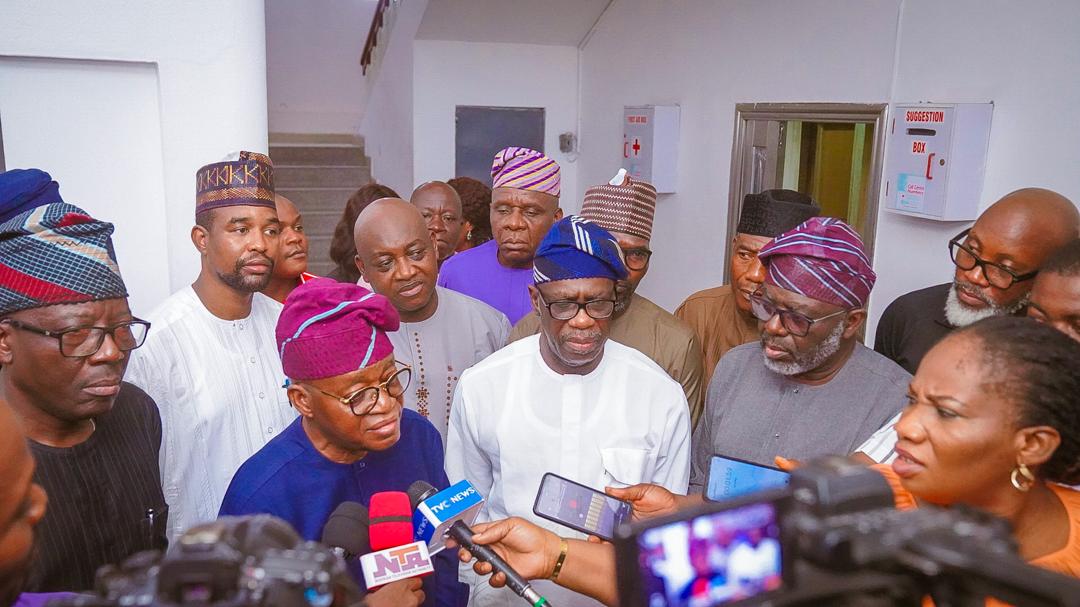

By Seun Ibiyemi
The rain in Lagos began very early on Thursday morning. But the torrential rainfall did not stop Minister of Marine and Blue Economy, Adegboyega Oyetola, CON, from embarking on the tour of two key institutions that were recently brought under his ministry — the Nigerian Institute for Oceanography and Marine Research (NIOMR) and the Liaison office of the Department of Fishery and Aquaculture, which houses College of Fishery, Lagos.
His first port of call was NIOMR, where the Chief Executive of the institute, Prof. Abiodun Sule, took the Minister through some of its strategic breakthroughs, including unveiling some of the different species of fish in our waters.
The Minister charged the Institute to take up the challenge of mapping out the country’s various marine resources, saying the country needs to know what it has and in what quantity.
He charged the staff to redouble their efforts and ensure they find a solution to the rising cost of fish feeds in Nigeria. The Minister reiterated his desire to increase local production of fish, while reducing dependence on importation.
From the Institute, Oyetola and his entourage, which included the Permanent Secretary, Oloruntola Olufemi; Director, Maritime Safety and Security, Babatunde Bombata, and the Executive Director, Engineering and Technical Services, Engr. Ibrahim Umar, who represented the the MD of NPA, headed for the Department of Fishery and Aquaculture, where the delegation inspected the Laboratory and charged the staff not to lower the standard of monitoring and inspection so as to ensure the country’s exporters are not blacklisted by the International community and also ensuring that those being imported meet required standard.
He assured the staff of both institutions of his commitment to their welfare, while urging them to also increase their capacity and productivity, as he wants to see the fishing contribute to job creation and increase in revenue of the FG.
The elated members of staff promised the Minister not to let him down and pledged their commitment to the vision and mission of the Minister with respect to the maritime sector.
Business
CPPE urges CBN to halt interest rate tightening, as businesses are yet to recover from previous hikes


The Centre for the Promotion of Public Enterprise (CPPE) has called on the Central Bank of Nigeria (CBN) to slow down on monetary policy tightening ahead of its Monetary Policy Committee (MPC) meeting this month, stating that businesses are yet to recover from the hawkish monetary policy stance in the last two months.
The Centre stated this in its reaction to the latest inflation figures published by the NBS where headline inflation rose to 33.69 percent in the month of April from 33.20 percent in March.
According to the statement signed by the Director-General of the CPPE, Dr Muda Yusuf, monetary policy tools should be paused for the fiscal side of the economy to work towards addressing the supply issues affecting the inflation dynamics in the country.
He stated, “Meanwhile we urge the monetary policy Committee to soften its monetary tightening stance for the time being. Businesses are yet to recover from the shocks of the recent bullish rate hikes. The monetary instruments should be put on pause while fiscal policy tools address supply-side factors in the inflation dynamics.”
Furthermore, the Centre appreciated the slowdown in inflation for the month, especially headline and food inflation, but noted that the main drivers of price hikes (food, transport, insecurity in farming communities and other structural problems) are yet to cool down.
He explained that the drivers of inflation are supply-based and being addressed by the fiscal authorities. Also, Dr. Yusuf doubled down on his call to the Nigerian Customs Service (NCS) to set a quarterly exchange rate between N800 and N1000 for import duties assessment, noting that the continuous fluctuation has a pass-through effect on inflation.
In his words, “Meanwhile the exchange rate benchmark for the computation of import duty continues to be a major concern to businesses as it has become a major inflation driver. We again urge the CBN to peg the rate at between N800 -N1000/dollar to be reviewed quarterly. This is necessary to reduce the pass-through effect of heightening trade costs on inflation.”
Meanwhile, the CPPE also lauded the commencement of refining by the Dangote refinery, stating that it would help slow down inflation in the short term.
Recall that Nigeria’s inflation rate rose to 33.69 percent in April on the back of an increase in food and transport prices. The rate is one of the highest in about 28 years.
The CBN, in an effort to rein in inflation, has increased
Business
April 2024: FG, States, LGs share N1,208.081trn


The Federation Account Allocation Committee (FAAC), at its May 2024 meeting chaired by the Minister of Finance and Coordinating Minister of the Economy, Wale Edun, shared a total sum of N1,208.081 Trillion to the three tiers of government as Federation Allocation for the month of April, 2024 from a gross total of N2,192.007 Trillion.
From the stated amount inclusive of Gross Statutory Revenue, Value Added Tax (VAT), Electronic Money Transfer Levy (EMTL), and Exchange Difference (ED), the Federal Government received N390.412 Billion, the States received N403.403 Billion, the Local Government Councils got N293.816 Billion, while the Oil Producing States received N120.450 Billion as Derivation, (13 percent of Mineral Revenue).
The sum of N80.517 Billion was given for the cost of collection, while N903.479 Billion was allocated for Transfers Intervention and Refunds.
The Communique issued by the Federation Account Allocation Committee (FAAC) at the end of the meeting indicated that the Gross Revenue available from the Value Added Tax (VAT) for the month of April 2024, was N500.920 Billion as against N549.698 Billion distributed in the preceding month, resulting in a decrease of N48.778 Billion.
From that amount, the sum of N20.037 Billion was allocated for the cost of collection and the sum of N14.426 Billion given for Transfers, Intervention and Refunds. The remaining sum of N466.457 Billion was distributed to the three tiers of government, of which the Federal Government got N69.969 Billion, the States received N233.229 Billion, Local Government Councils got N163.260 Billion.
Accordingly, the Gross Statutory Revenue of N1,233.498 Trillion received for the month was higher than the sum of N1,017.216 Trillion received in the previous month of March 2024 by N216.282 Billion. From the stated amount, the sum of N59.729 Billion was allocated for the cost of collection and a total sum of N889.053 Billion for Transfers, Intervention and Refunds.
The remaining balance of N284.716 Billion was distributed as follows to the three tiers of government: Federal Government got the sum of N112.148 Billion, States received N56.883 Billion, the sum of N43.855 Billion was allocated to LGCs and N71.830 Billion was given to Derivation Revenue (13 percent Mineral producing States).
Also, the sum of N18.775 Billion from Electronic Money Transfer Levy (EMTL) was distributed to the three (3) tiers of government as follows: the Federal Government received N2.704 Billion, States got N9.012 Billion, Local Government Councils received N6.308 Billion, while N0.751 Billion was allocated for Cost of Collection.
The Communique also disclosed the sum of N438.884 Billion from Exchange Difference, which was shared as follows: Federal Government received N205.591 Billion, States got N104.279 Billion, the sum of N80.394 Billion was allocated to Local Government Councils, while N48.620 Billion was given for Derivation (13 percent of Mineral Revenue).
Oil and Gas Royalties, Companies Income Tax (CIT), Excise Duty, Petroleum Profit Tax (PPT), Customs External Tariff levies (CET) and Electronic Money Transfer Levy (EMTL) increased significantly, while Import Duty and Value Added Tax (VAT) recorded considerably decreases.
According to the Communique, the total revenue distributable for the current month of April 2024, was drawn from Statutory Revenue of N284.716 Billion, Value Added Tax (VAT) of N466.457 Billion, N18.024 Billion from Electronic Money Transfer Levy (EMTL), and N438.884 Billion from Exchange Difference, bringing the total distributable amount for the month to N1,208.081 Trillion.
The balance in the Excess Crude Account (ECA) as at May 2024 stands at $473,754.57.
-
Finance4 months ago
Court orders Sen. Victor Umeh to repay N136m bank debt to AMCON
-



 Abuja Update3 months ago
Abuja Update3 months agoUNDP, FG partnership needed to achieve inclusion, equity- Minister
-
Abuja Update2 months ago
Banks drive stock market performance with N147bn gain
-
capital market2 years ago
Rt.briscoe, FBNH, Others halts negative performance of stock market
-
Submission Guidelines4 months ago
CALL FOR SUBMISSIONS: POETRY COLUMN-NND
-



 Health1 month ago
Health1 month agoCapacity training will reduce migration of health workers- NPHCDA
-



 Business4 weeks ago
Business4 weeks agoTingo Group unveils Tingo Electric, Tingo Cola drink at Lagos launch
-
News5 months ago
Oil thieves sponsoring malicious media campaign against Navy – Spokesman

